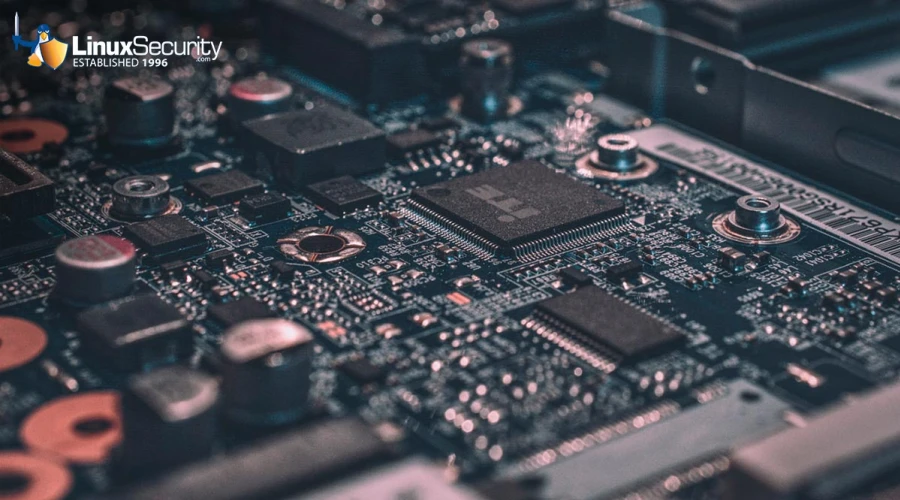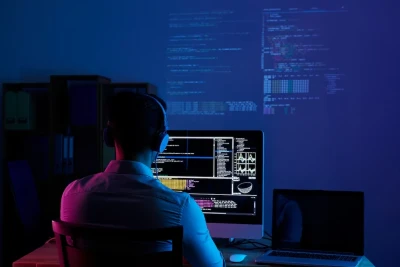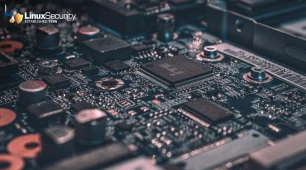
Keeping our systems secure and stable is a top priority for us Linux admins, especially when dealing with advanced graphics and computing capabilities. The latest AMDGPU pull request for Linux 6.14 brings significant updates that enhance both security and stability.
This update introduces cleaner shader support for GFX12.0 and GFX12.0.1 GPUs, designed to prevent potential data leaks by clearing GPU resources between workloads. This improvement is significant for systems running multiple concurrent workloads or untrusted code, ensuring that sensitive data does not inadvertently transfer between tasks.
Additionally, the pull request includes bug fixes for the GFX12 graphics engine and addresses a specific issue with OpenCL test failures by disabling GFXOFF support during compute workloads. These updates ensure that systems utilizing the latest AMD GPUs, especially those in multi-tenant or high-security environments, remain secure and efficient. Staying informed about these changes is key to maintaining the integrity and performance of your systems.
In this article, I'll delve into the details of these updates, explaining their importance and practical implications for our environments.
Cleaner Shader Support
 Source: Phoronix The most prominent feature in this update is cleaner shader support for GFX12.0 and GFX12.0.1 GPUs. This new capability is designed to prevent potential data leaks by thoroughly clearing GPU resources, such as the Local Data Share (LDS), Vector General Purpose Registers (VGPRs), and Scalar General Purpose Registers (SGPRs), between workloads. This is crucial in environments where GPUs are shared among multiple users or processes, ensuring that sensitive data does not inadvertently transfer between tasks.
Source: Phoronix The most prominent feature in this update is cleaner shader support for GFX12.0 and GFX12.0.1 GPUs. This new capability is designed to prevent potential data leaks by thoroughly clearing GPU resources, such as the Local Data Share (LDS), Vector General Purpose Registers (VGPRs), and Scalar General Purpose Registers (SGPRs), between workloads. This is crucial in environments where GPUs are shared among multiple users or processes, ensuring that sensitive data does not inadvertently transfer between tasks.
Cleaner shader support enhances security by isolating data processed by GPU workloads. For example, in a data center where multiple tenants may be running GPU-accelerated tasks, this feature ensures that the data handled by one tenant's workload is not left behind in the GPU resources for another tenant to access. This improvement is particularly critical for high-security environments where data privacy and integrity are paramount.
Security Enhancements with RDNA4
The cleaner shader functionality is a significant security enhancement tailored for the upcoming RDNA4 graphics cards. RDNA4 represents the next generation of AMD's graphics architecture, promising better performance and efficiency. However, with increased power comes the need for tighter security measures, especially given the potential for more complex and diverse workloads.
The anticipation of RDNA4's release makes the cleaner shader support even more relevant. By incorporating these security measures, AMD is laying a foundation that will benefit future hardware deployments. This foresight helps ensure a smooth transition to RDNA4 while maintaining high security and reliability, which all administrators should appreciate.
Fixes for the GFX12 Graphics Engine
 Beyond cleaner shader support, the pull request includes several bug fixes focused on the GFX12 graphics engine. As the technology used by the latest Radeon RX 9070 series graphics cards, ensuring the stability of the GFX12 engine is essential. These fixes address existing issues and enhance the overall reliability of your systems - something administrators will find valuable for maintaining predictable and stable operations.
Beyond cleaner shader support, the pull request includes several bug fixes focused on the GFX12 graphics engine. As the technology used by the latest Radeon RX 9070 series graphics cards, ensuring the stability of the GFX12 engine is essential. These fixes address existing issues and enhance the overall reliability of your systems - something administrators will find valuable for maintaining predictable and stable operations.
Bug fixes are integral to the ongoing maintenance required to keep systems running smoothly. They address potential vulnerabilities and performance hiccups that could otherwise lead to more significant problems. By staying updated with these changes, administrators can avoid unexpected downtime and ensure their systems operate optimally.
Addressing OpenCL Test Failures
One specific issue addressed by this pull request is related to OpenCL test failures. The fix involves disabling GFXOFF support during compute workloads. While this might seem like a workaround, it's an essential step in ensuring that computational tasks are completed successfully without interruption.
OpenCL (Open Computing Language) is widely used for writing programs that execute across heterogeneous platforms, including CPUs, GPUs, and other processors. Ensuring these tasks run smoothly and without error is crucial in environments where OpenCL is heavily utilized. This update addresses a specific failure scenario, providing a temporary solution while a more permanent fix is likely being developed.
Understanding The Importance of Regular Updates
 The significance of regular system updates to keep systems secure and reliable cannot be underestimated. Staying informed with patches and upgrades helps mitigate potential vulnerabilities quickly, with this AMDGPU pull request containing updates designed to enhance security, performance, and reliability on systems using these GPUs.
The significance of regular system updates to keep systems secure and reliable cannot be underestimated. Staying informed with patches and upgrades helps mitigate potential vulnerabilities quickly, with this AMDGPU pull request containing updates designed to enhance security, performance, and reliability on systems using these GPUs.
Staying current with hardware and software developments through regular updates ensures compatibility with new hardware and software releases, keeping up with technological innovations while mitigating risk and taking full advantage of cutting-edge tech advancements.
Practical Implications for Administrators
From a practical standpoint, these updates require us to stay informed and ensure that their systems run the latest Linux kernel versions and corresponding drivers. Implementing these updates might involve testing in a controlled environment to ensure compatibility with existing configurations and workloads.
Once tested, rolling out these updates across all relevant systems is the next step. This process typically involves scheduling downtime or maintenance windows to minimize user impact. Detailed documentation and stakeholder communication are also crucial to ensure a smooth transition.
Administrators should also consider the broader implications of these updates for their security policies and procedures. For example, understanding how cleaner shader support enhances data isolation can inform decisions about workload placement and multi-tenancy configurations. Similarly, awareness of specific fixes, like those related to OpenCL, can help troubleshoot and optimize performance for particular applications.
Looking Ahead
 As technology develops, we expect enhancements and updates to meet emerging security needs and opportunities. Adding cleaner shader support and improvements for RDNA4 security are two measures AMD GPU-powered systems take to strengthen security overall. As more devices use AMD GPUs in Linux systems, we should expect further updates designed to address new security threats or vulnerabilities as technology evolves.
As technology develops, we expect enhancements and updates to meet emerging security needs and opportunities. Adding cleaner shader support and improvements for RDNA4 security are two measures AMD GPU-powered systems take to strengthen security overall. As more devices use AMD GPUs in Linux systems, we should expect further updates designed to address new security threats or vulnerabilities as technology evolves.
Administrators must anticipate future needs and developments, applying updates as soon as they become available and anticipating them so that our systems remain safe, efficient, and capable of keeping pace with the rapidly advancing technological environment. By doing so, we can ensure our systems remain secure, efficient, and future-proof.
Our Final Thoughts on This AMDGPU Pull Request for Linux 6.14
The latest AMDGPU pull request for Linux 6.14 offers significant updates that enhance security and stability for systems using AMD GPUs. Cleaner shader support for GFX12.0 and GFX12.0.1 GPUs prevents potential data leaks, ensuring data isolation in multi-tenant environments, including bug fixes for the GFX12 graphics engine and the workaround for OpenCL test failures, further enhancing system reliability.
Linux security administrators must remember that updates are essential in providing a safe and efficient environment. By staying informed and implementing necessary changes, we can ensure our systems take advantage of new developments while remaining highly secure and reliable. As we look ahead, constant learning and proactive maintenance will remain key components in navigating technological challenges and opportunities.
















